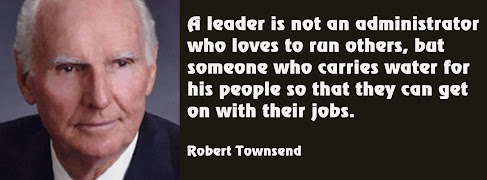The thing about toxic leadership is that it destroys morale by creating fear and resentment, it is counter productive to moving any organization forward, and it damages relationships and trust. The frightening thing to ponder about toxic leaders is that many of them actually think they are doing a great job, think that others think they are doing a great job, and do not have the self awareness to realize what is really happening.
There are a variety of reasons the leadership becomes toxic. Some of the reasons are listed above. There are more. Toxic leaders behave in a way that is contrary to all we know about how to be an effective leader. The vast majority of them do not view leadership as a service and a privilege, but rather as an entitled right. The toxic leader has the mindset that they 'have arrived' and revel in the power and control. What they don't realize is that in the end, success will allude them. As the old cliché goes, 'what goes around comes around'. In most cases, they will be found out and will not be successful.
Organizational success relies on productive team members. Productive team members come from a positive and nurturing culture. A positive and nurturing culture comes from an effective leader who views leadership as a responsibility to serve and create an environment that sets people up for success. Toxic leaders just don't understand these fundamental principles.
Toxic leaders destroy organizations and they destroy people. Don't be a toxic leader!







